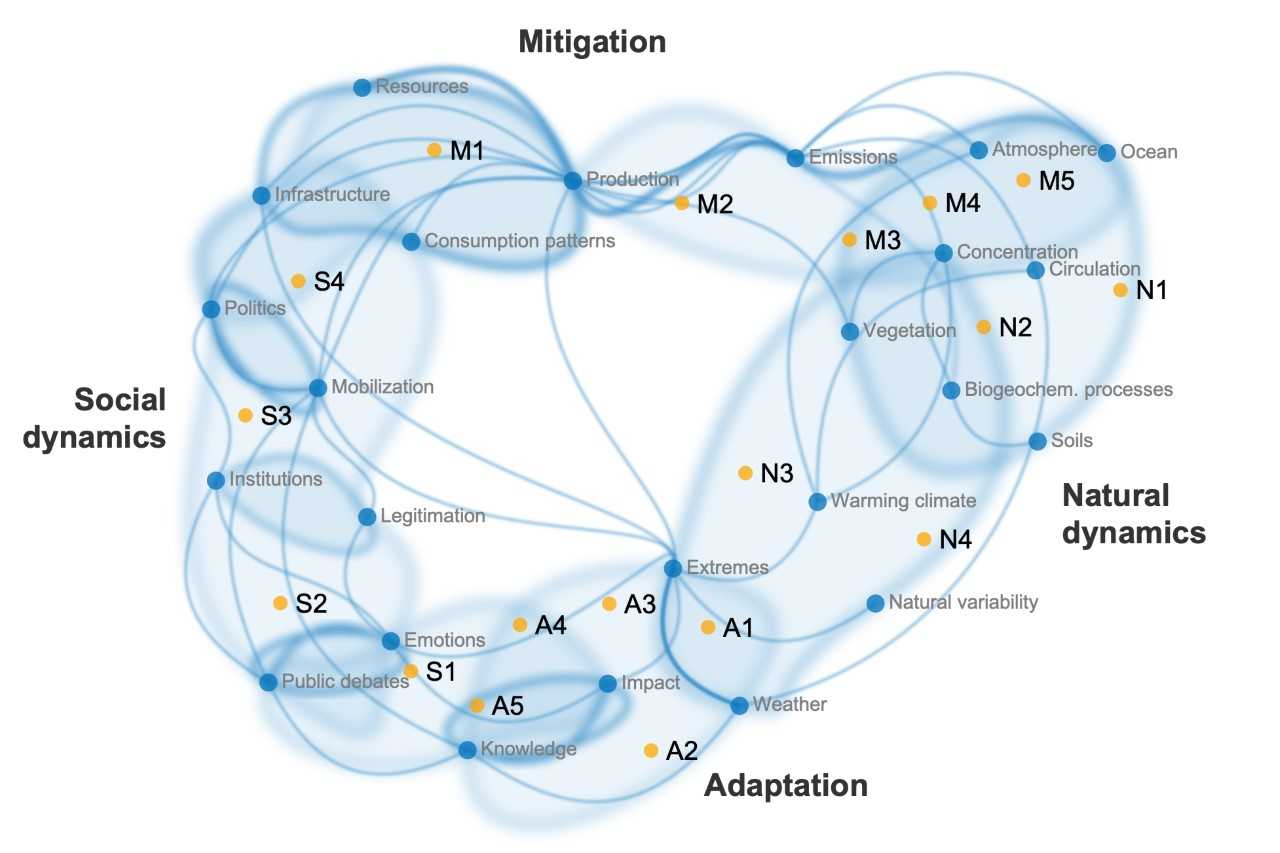Coming soon: CLICCS II
Nach dem Erfolg im Exzellenzwettbewerb wird der CLICCS-Cluster im Januar 2026 in seine zweite Förderphase starten. Der neue Cluster wird wissenschaftliche Antworten auf die Frage liefern: Welche Klimazukünfte sind plausibel und wie können gewünschte Klimazukünfte realisiert werden?
Der integrative Ansatz von CLICCS charakterisiert Klimazukünfte durch den Fokus auf zwei Schlüsseldynamiken und deren Wechselwirkung: die natürliche Dynamik des Klimasystems und die soziale Dynamik der Gesellschaft, die durch Klimaschutz- und Anpassungsmaßnahmen gekoppelt sind. Dementsprechend ist CLICCS II in vier Forschungsbereiche gegliedert: Social Dynamics, Mitigation, Natural Dynamics und Adaptation. Diesen Bereichen sind insgesamt 18 Forschungsprojekte zugeordnet, die jeweils grundlegende Aspekte von Klimazukünften untersuchen.

Abbildung: CLICCS II Karte der gemeinsamen Konzepte (Knotenpunkte) und ausgewählten verbindenden Prozesse zwischen ihnen (Linien), die zur Darstellung der sozialen und natürlichen Dynamiken von Klimazukünften und den zwei zusammenhängenden Konzepten der Abmilderung und Anpassung dient. Copyright: UHH/CLICCS.
Social Dynamics:
S1 "Social constructions of climate moods"
S2 "Contested climate futures: Discursive powerplay in the media"
S3 "Varieties of climate agency: Constitution, dynamics and effects"
S4 "Climate policy formation: Predictions, preferences and politics"
Mitigation:
M1 "Decarbonization dynamics of companies"
M2 "Renewables and carbon offsets in the Global South: Impacts and social conflict"
M3 "Carbon dynamics and climate futures in drylands of Southern Africa"
M4 "Earth system feedbacks in the land-ocean continuum"
M5 "Response of carbon sinks under deep decarbonization"
Natural Dynamics:
N1 "Ocean circulation"
N2 "Low-level clouds"
N3 "Precipitation"
N4 "Scale interactions in a waming Arctic"
Adaptation:
A1 "Climate AI interaction with stakeholders in Northern Germany"
A2 "Co-creating narrative-based near-term climate predictions to prepare for volatile future climates"
A3 "Costs and consequences of extremes in a changing climate"
A4 "Extreme adaptation to climate change"
A5 "Co-creating socio-ecological transformation of climate change governance in North Germany"
